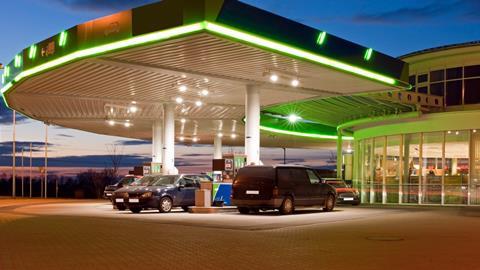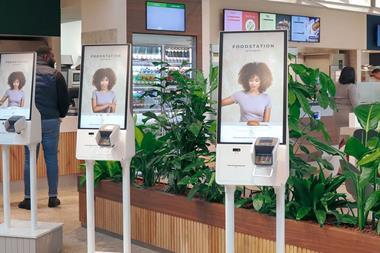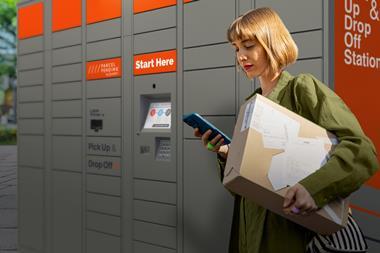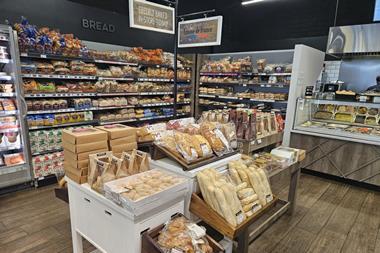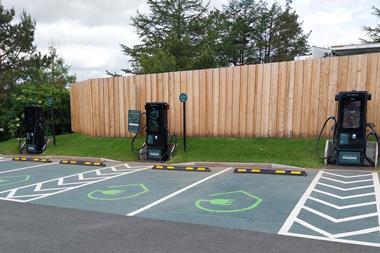Petrol forecourts are evolving with the rise of electric vehicles (EVs), requiring strong health & safety, auditing and compliance practices. Retailers must integrate EV charging, conduct audits, and train staff. Cegid Retail Store Excellence helps streamline these processes and enhance customer experience, ensuring compliance and resilience.
Petrol forecourts are no longer just places to refuel; they’re evolving into dynamic hubs where convenience meets customer experience. With the rapid growth of electric vehicles (EVs), forecourt retail is undergoing a transformative shift. As customer expectations and operational challenges evolve, ensuring robust health & safety, auditing and compliance practices becomes more critical than ever.
Navigating increasing regulatory complexity
Forecourt retailers face a complex regulatory landscape, compounded by the transition to EV infrastructure and evolving customer demands. Here are some key statistics and challenges:
Electric vehicle adoption: In 2021, EVs made up just 3.1% of the total number of cars on the road. This equates to just under 400,000 cars. By 2025, this figure is expected to double to an estimated 6% and an even higher figure of 19% by 2030 with 6.4 million cars forecasted on the road [Drive Electric].
Compliance challenges: In 2023, 64% of convenience retailers reported that compliance with health and safety regulations was a significant challenge [National Association of Convenience Stores].
Regulatory fines: Non-compliance can result in significant fines. In the UK alone, fines for breaches of health and safety regulations can reach up to £20,000 per offence, posing a financial risk to businesses [Health and Safety Executive].

Challenges and solutions
Integration of EV charging stations: With the rise in EVs, forecourts must seamlessly integrate charging infrastructure while adhering to safety standards. This includes regular inspections and certifications to ensure safe operations.
Health & safety audits: Implementing regular health & safety audits is crucial. These audits should encompass fire safety measures, emergency response protocols, and compliance with environmental regulations.
Training and education: Equip staff with comprehensive training on safety procedures and compliance requirements. Regular training and updates are essential to maintain a culture of safety and compliance across all operational levels.
Technology-driven compliance: Leveraging technology to streamline compliance processes can enhance efficiency and accuracy in monitoring safety protocols. Digital auditing tools and real-time reporting are key components.
Customer engagement and safety: Enhance customer experience by integrating safety measures transparently. Clear signage, accessible safety information, and well-trained staff contribute to a secure and customer-friendly environment.
The role of Cegid Retail Store Excellence
Cegid Retail Store Excellence is a task management and retail operations platform tailored to the unique needs of forecourt retailers. It helps prioritise tasks, streamline auditing, and ensure safe and legal trade – all within a single application. Here’s how it supports the key areas of health & safety, auditing, and compliance:
Streamlined audits: Conduct thorough health & safety audits efficiently using digital tools that ensure no detail is overlooked. Regular inspections and certifications are seamlessly managed.
Real-time reporting: Maintain up-to-date compliance records with real-time reporting capabilities, allowing for immediate action on any identified issues.
Staff training: Centralise training resources and ensure all staff are regularly updated on the latest safety protocols and compliance requirements.
Enhanced customer experience: Improve customer engagement by ensuring that all safety measures are transparent and accessible, thereby building trust and ensuring a secure environment for customers.
The future of forecourt retail
As forecourt retailing adapts to the EV revolution and changing consumer behaviours, proactive management of health and safety and compliance will differentiate market leaders. By embracing technology, fostering a culture of safety, and staying ahead of regulatory shifts, forecourt retailers can navigate the evolving landscape while delivering exceptional customer experiences.
In conclusion, as the forecourt retail sector evolves, prioritising health & safety auditing and compliance isn’t just about meeting regulatory standards – it’s about building trust, ensuring operational resilience, and positioning for sustained growth in an increasingly competitive market.
To learn more, visit: https://www.cegid.com/global/lp/retail-callback-cegid-retail-store-excellence-forecourt-2024/






















